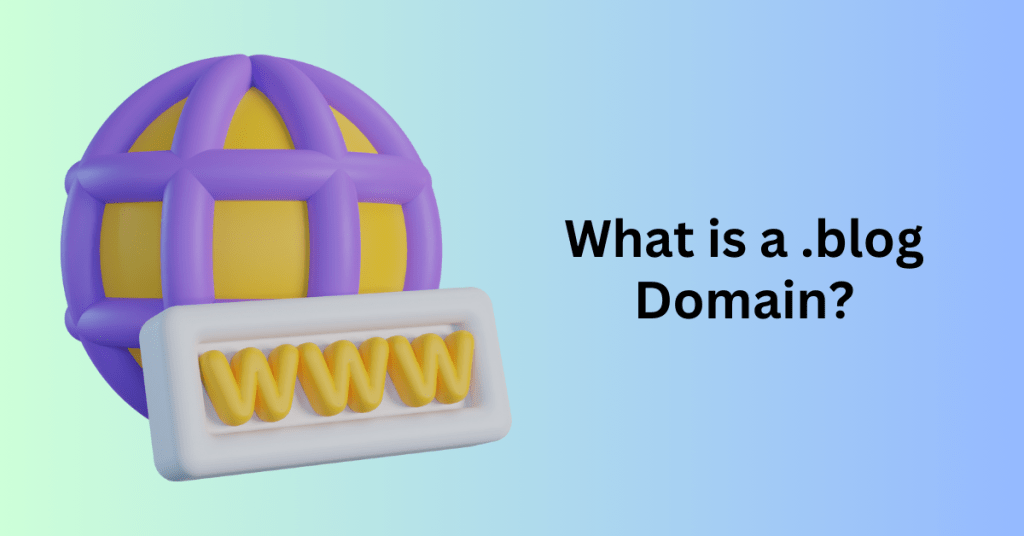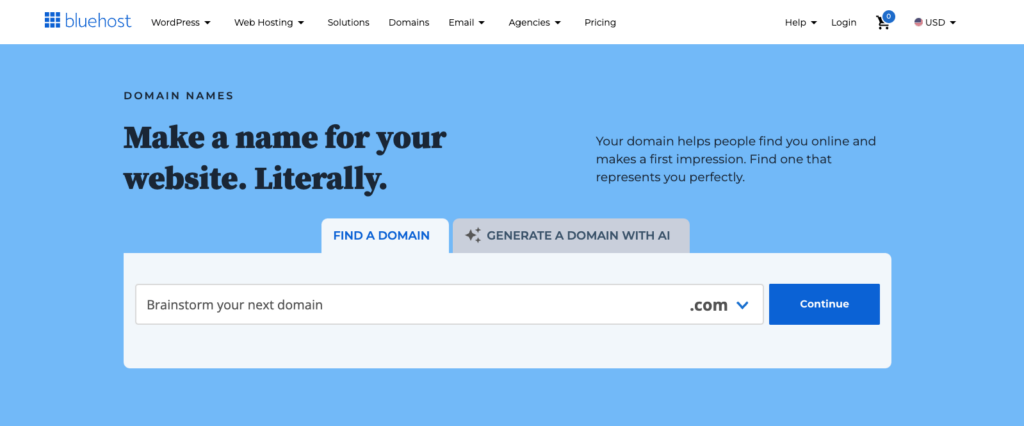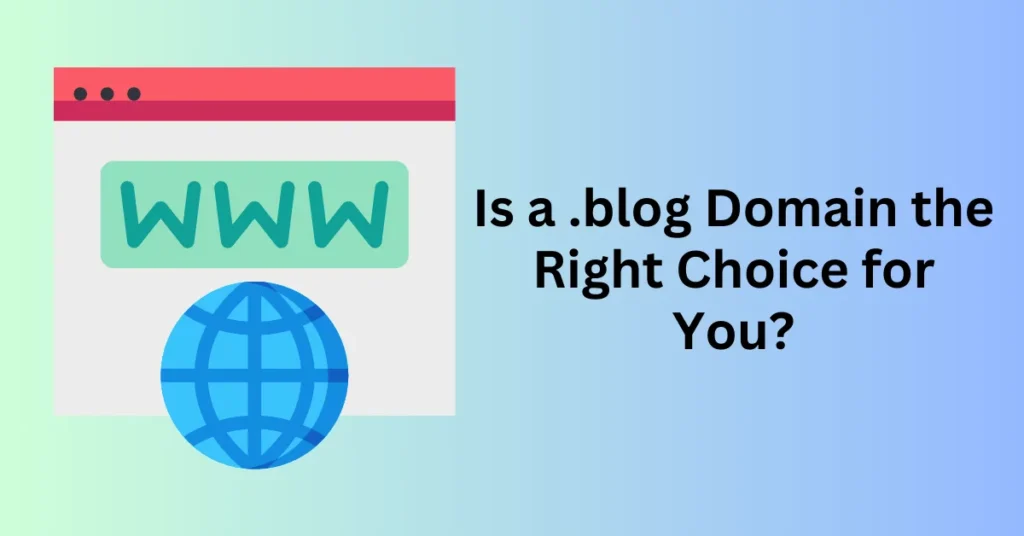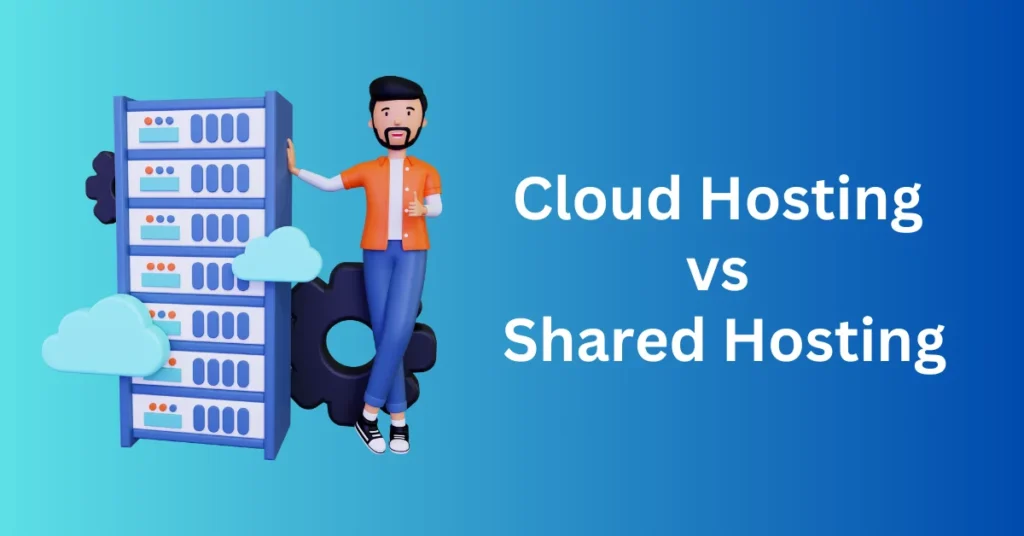Unlike traditional extensions, generic Top-Level Domains (gTLDs) offer a glimpse into a website’s nature or focus. For example, .edu is reserved for educational institutions, while .gov signifies government entities. Among these, the .blog domain stands out as a unique and modern solution for individuals and organizations aiming to share their stories and boost their online visibility.
The United States boasts over 148 million domain registrations as of 2024, underscoring the pivotal role a domain name plays in capturing online attention. A domain name acts as a digital handshake, shaping how audiences perceive your brand even before they click. Widely recognized domain extensions like .com, .org, and .net are global and versatile, but they don’t provide specific insights into a website’s purpose or geographic origin unless explicitly stated.
The .blog extension is open to anyone worldwide, making it an appealing option for bloggers, content creators, and businesses striving to connect with their audiences in an engaging and authentic manner. Its focus on storytelling and content creation provides a purposeful way to establish a meaningful online presence.
This guide delves into the benefits, challenges, and actionable steps to help you determine whether a .blog domain is the right fit for your personal or professional goals.
What is a .blog Domain?

The .blog domain is a generic top-level domain (gTLD) designed for websites focused on content creation and blogging. Unlike traditional extensions like .com or .org, the .blog gTLD signals that the website’s primary purpose is sharing content, ideas, and stories. It helps visitors quickly understand the site’s focus. This makes it a great choice for anyone looking to emphasize blogging in their online presence.
One major advantage of the .blog domain is its universal accessibility. It serves a wide range of users, including individuals, businesses, and organizations from different industries. Whether you’re a hobbyist sharing your personal journey, a business improving its content marketing or a nonprofit raising awareness, the .blog extension offers a professional and relevant solution.
Choosing a .blog domain helps define the purpose of your website clearly. It also provides an opportunity to stand out in the crowded online space. With its global availability and flexibility, the .blog domain is a powerful tool for building a content-driven digital presence.
Pros of Choosing a .blog Domain Extension
1. Clear Branding and Identity
A .blog domain immediately conveys your site’s focus on blogging, storytelling, and delivering valuable content. This transparency helps readers quickly understand your purpose and positions your brand as part of the vibrant blogging community.
For example:
- Streetphotography.blog creates a more memorable impact than Streetphotography.com.
- Swapping TechInnovatorsHub.com for TechInnovators.blog makes the brand’s purpose clearer and aligns it with blogging trends.
This specificity not only strengthens your identity but also enhances your appeal within the blogosphere, which continues to shape innovations, trends, and lifestyle habits.
2. Availability of Unique Domain Names
With millions of traditional .com domains already taken, finding an available and relevant domain name can be difficult. The .blog extension offers a fresh alternative, granting you greater flexibility and creativity. You can secure a domain that perfectly aligns with your vision without compromising on originality.
3. Enhanced Searchability and SEO Potential
Google treats all top-level domains (TLDs) equally, so a .blog extension performs just as well as a .com. However, its specificity can give you a competitive edge by improving click-through rates, as users are more likely to engage with a site that clearly signals its content focus.
When combined with effective SEO practices such as keyword optimization and high-quality content, a .blog domain reinforces your site’s purpose and helps attract a targeted audience. For instance, users searching for content-driven topics may find a .blog domain more relevant and engaging.
4. Association with Trusted Platform
The .blog extension is backed by Automattic, the parent company of WordPress, one of the most trusted platforms in the blogging world. This association enhances credibility and ensures seamless compatibility with tools designed specifically for bloggers, including WordPress themes, plugins, and integrations.
5. Memorability and Relevance
Short and precise domains like Lifestyle.blog or Tech.blog stand out for their clarity and relevance. Such domains are easy to remember, making it more likely for your audience to revisit and share your site. Their direct connection to your content builds trust and fosters stronger relationships with readers.
6. Support for Blog-Based Businesses
Blogging has evolved into a powerful tool for business growth, driving traffic, and building customer trust. A .blog domain signals your commitment to delivering valuable content, which can resonate with audiences and improve engagement.
Studies show that consumers are more likely to trust and connect with brands offering informative blogs. By choosing a .blog extension, you can position your business as a thought leader, enhance your content strategy, and support customer retention.
7. Flexibility for Personal and Organizational Growth
Whether you’re creating a personal blog, building your professional brand, or sharing organizational updates, the .blog extension is versatile enough to adapt to your evolving needs. From championing a cause to promoting products or services, it aligns seamlessly with diverse goals while maintaining a strong connection to the blogging community.
8. Ease of Integration with Blogging Tools
A .blog domain integrates seamlessly with popular blogging platforms like WordPress. It provides access to powerful features such as customizable themes, SEO plugins, and analytics tools. Hosting providers like Bluehost offer optimized solutions specifically designed for .blog domains, ensuring smooth performance and easy management.
Choosing a .blog domain is more than just a branding decision. It’s a strategic move for anyone looking to share stories, build influence, or enhance their online presence. By combining clarity, creativity, and technical compatibility, a .blog domain aligns perfectly with the blogging ecosystem. This empowers individuals and businesses to thrive in today’s content-driven digital landscape.
Cons of Choosing a .blog Domain Extension
While a .blog domain extension offers many advantages, there are certain drawbacks to consider:
1. Limited Perception of Professionalism for .blog Domain
In certain industries or contexts, the .blog extension may not be perceived as professional as traditional extensions like .com, .org, or .net. This could be a concern for businesses or organizations targeting formal or corporate audiences, where a .com domain is often seen as the standard for credibility.
For instance, a law firm or financial institution may find a .blog domain less suitable. The .com or .org extensions are more closely associated with established, professional entities.
2. Potential Niche Restriction for .blog Domain
The .blog domain inherently signals a focus on blogging, storytelling, and content-driven strategies. While this is ideal for bloggers and content creators, it may become limiting if the website’s purpose shifts to broader business ventures. For instance, if a blog evolves into an eCommerce platform or a multifaceted business site, the specificity of the .blog extension might not align with the expanded scope.
For example, A website initially focused on blogging about handmade crafts might face challenges repositioning itself as a full-fledged online store under a .blog domain.
3. Reduced Trust in Non-Blogging Contexts for .blog Domain
The .blog extension is relatively new compared to well-established TLDs like .com, which have built-in familiarity and trust among internet users. For audiences unfamiliar with .blog, it may not inspire the same level of confidence. This can be especially problematic for eCommerce or transactional websites, where user trust is essential for conversions.
For example, customers may hesitate to make purchases from an online store with a .blog domain. It may not immediately convey the professionalism or security associated with established shopping platforms.
While the .blog extension has unique advantages for content-driven websites, its perceived limitations highlight the need to carefully consider your website’s purpose and audience. If your focus is blogging or storytelling, a .blog domain can be a strategic and impactful choice. However, businesses with a broader or more traditional scope might find a more conventional domain extension a better fit.
Before committing to a .blog domain, weigh its benefits against these potential drawbacks. This will help ensure it aligns with your long-term goals and audience expectations.
Challenges to Consider When Choosing a .blog Domain Extension
While a .blog domain extension offers unique benefits for content-focused websites, there are several challenges to weigh before making a decision:
Less Popular than .com
The .com extension remains the gold standard for domain recognition and trust. Many internet users instinctively type “.com” when searching for a website, which could result in misdirected traffic if your domain uses .blog instead.
For example, if your website is YourName.blog, users might accidentally type YourName.com, potentially leading them to unrelated content or a competitor’s site. This lack of familiarity could impact your site’s discoverability and brand reach.
Perceived Novelty
As a relatively new domain extension, .blog may feel unfamiliar or unproven to certain audiences. While Automattic (the company behind WordPress) has worked to promote its adoption, it hasn’t yet achieved the universal recognition of older extensions like .com or .org.
This novelty might make some visitors skeptical, particularly in industries where trust and reputation are paramount, such as finance, healthcare, or eCommerce.
Premium Pricing for High-Value Domains
While standard .blog domains are generally affordable, securing high-value names—such as single-word or highly niche-specific domains—can come with a premium price tag. This could pose a challenge for individuals or small businesses with limited budgets.
For example, a domain like Travel.blog or Fitness.blog could cost significantly more than standard pricing, making it less accessible to budget-conscious users.
To mitigate the challenges associated with a .blog domain extension, consider implementing a few strategic measures. First, use redirects to capture misdirected traffic by purchasing the .com version of your domain (if available) and redirecting it to your .blog site. This approach ensures that users who mistakenly type “.com” instead of “.blog” are still directed to your intended website.
Additionally, leverage SEO and marketing efforts to build awareness and trust for your .blog domain. Focus on highlighting the relevance and purpose of your site to help audiences recognize its value and credibility. Effective optimization and promotion can enhance visibility and user confidence in your domain.
Finally, choose a domain name that is both meaningful and affordable. Avoid overly generic terms that may come with a premium price tag, and instead select a name that aligns with your brand and resonates with your target audience. By following these steps, you can address potential challenges while maximizing the benefits of your .blog domain.
Who Should Use a .blog Domain?
The .blog domain is a versatile and purpose-driven choice for a variety of users who prioritize content creation and storytelling. Here’s a closer look at who can benefit most from this domain extension:
1. Personal Bloggers
For individuals who want to share their passions, stories, or expertise, the .blog domain is an excellent fit. Whether you’re chronicling your travel adventures, offering cooking tips, or sharing personal growth insights, this extension reinforces your identity as a blogger and makes your site’s purpose immediately clear.
2. Businesses
Companies looking to enhance their brand’s visibility through content marketing can greatly benefit from a .blog domain. It’s ideal for businesses aiming to educate their audience, build trust, and establish thought leadership in their industry by hosting a dedicated blog as part of their digital strategy.
3. Nonprofits and Advocacy Groups
For organizations that rely on storytelling to connect with their audience, a .blog domain is a powerful tool. Nonprofits and advocacy groups can use it to share updates, success stories, and progress on their initiatives, fostering deeper engagement and support from their communities.
4. Content Creators
Whether you’re a writer, photographer, artist, or any other type of content creator, the .blog domain provides a professional platform to showcase your creativity. It highlights your commitment to sharing valuable content and creates a clear identity aligned with your work.
With its flexibility and focus on blogging, the .blog domain is an excellent choice for anyone seeking to build a strong online presence centered around content creation and storytelling.
How to Register a .blog Domain
Registering a .blog domain is a straightforward process that involves a few key steps to get your website up and running. Here’s a step-by-step guide to help you get started:
1. Find the Perfect Name
Start by brainstorming domain names that align with your niche and branding. Consider names that are memorable, relevant to your audience, and reflective of your blog’s purpose. Use a trusted domain registrar like Bluehost to search for availability. Bluehost’s user-friendly tools make it easy to discover and secure your ideal domain name.
2. Register Your Domain
Once you’ve found the perfect domain name, proceed with the registration process. Choose a reliable registrar that offers seamless integration with hosting and other services, ensuring your website setup is smooth and hassle-free.

3. Choose Hosting and Build Your Blog
Pair your .blog domain with a hosting plan optimized for WordPress, such as those offered by Bluehost. Their hosting packages come with built-in tools designed for bloggers, including SEO marketing features, customizable themes, and plugins. Bluehost’s Website Builder further simplifies the process, allowing users of all skill levels to create a professional-looking site without needing HTML expertise.

4. Launch and Optimize
After designing your blog using WordPress’s customizable themes, focus on optimizing it for search engines to boost visibility. Implement SEO strategies such as keyword optimization, mobile responsiveness, and quality content creation. Regularly update your blog with fresh, engaging posts to attract and retain readers.
Final Thoughts: Is a .blog Domain the Right Choice for You?
A .blog domain is ideal for individuals and businesses focused on content creation and storytelling. Whether launching a personal blog or enhancing your business’s content strategy, this domain helps you stand out.
Though it doesn’t have the recognition of .com, a .blog domain offers unique advantages. Its availability makes creative names easier to secure, and its branding connects you to the blogging community. Dedicated support and tools make it a great choice for building a content-driven presence.
Pair your .blog domain with a reliable hosting provider like Bluehost, which offers optimized WordPress hosting for bloggers. With the right tools and strategies, a .blog domain helps you connect with your audience and achieve your goals.
To ensure a seamless experience, pair your .blog domain with a reliable hosting provider like Bluehost, which offers optimized WordPress hosting tailored for bloggers. By combining the right tools, hosting solutions, and content strategies, a .blog domain can help you effectively connect with your audience and achieve your online goals.


